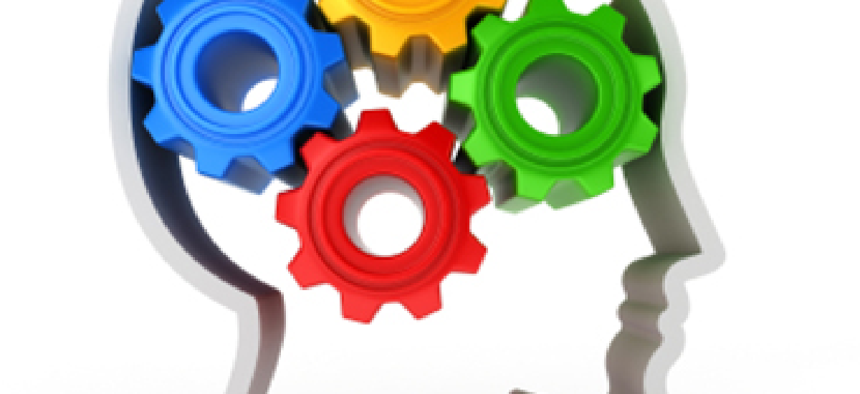The IC wants a peek at the future of your brain

An IARPA RFI seeks answers on what brain structures could be used to determine future job performance.

WHAT: The Intelligence Advanced Research Projects Activity (IARPA) is looking for ways to measure brainpower, with an eye to understanding how an individual might adapt to future job demands.
WHY: The spy skunkworks wants to take advantage of recent advances in neural mapping and measurement to get beyond traditional ways of estimating future cognitive performance like testing and inferring from past achievements, as a potential future human resources tool.
For example, research has shown that certain brain measurements can predict levels of skill acquisition in mathematical problem solving. IARPA is wondering whether this might apply to professions "where job demands and required skills change rapidly due to new environments, new competitors, and/or advances in tools and methods," according to an Aug. 1 request for information posted on the agency website.
In particular, IARPA wants ideas on "non-invasive assays of brain structure and/or function" that can predict and measure real-world learning outcomes that are "relevant to national security." This could mean anything from acquisition of human and programming languages, to the rapid absorption of information about countries and cultures, to the mastery of new computer systems or business processes.
The RFI seeks answers on what brain structures could be used to determine future performance, information on the technology used to collect neural data, and logistical hurdles to information collection at scale. In terms of measurement, IARPA is interested in how far in advance neural data can predict performance, what types of aptitudes are most likely to be predetermined by neural measurements, and whether the accuracy of predictions might vary over different population groups, according to age, gender, nationality or other factors.
Click here to read the RFI.
NEXT STORY: American privacy values vs. European perceptions



